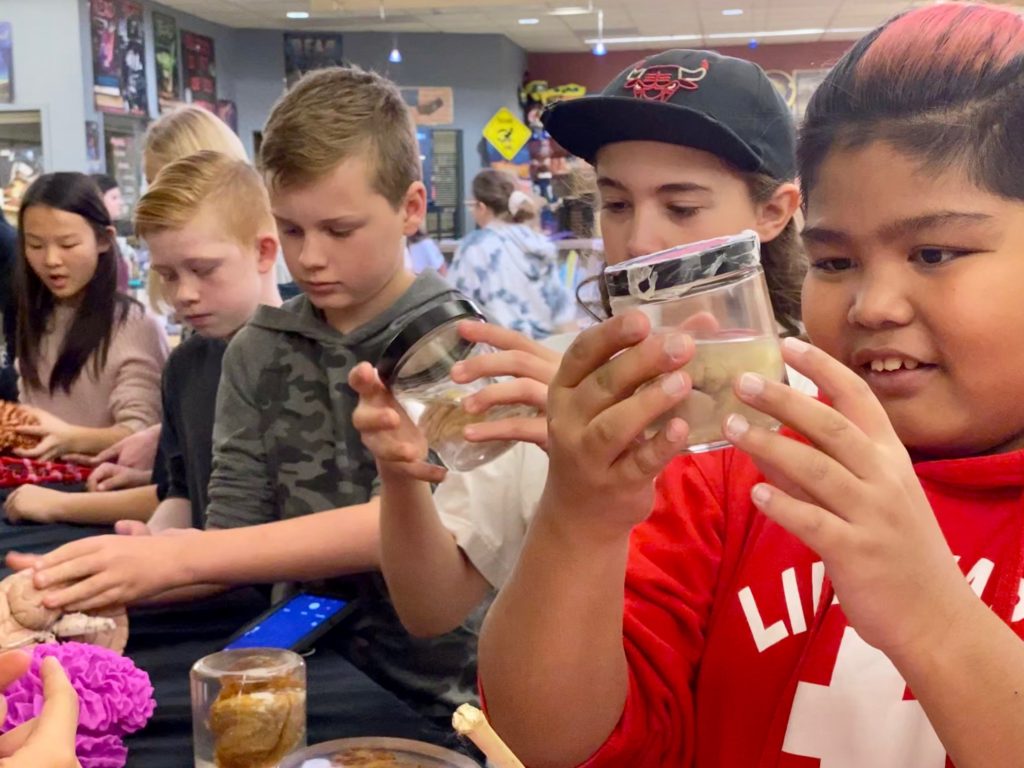
“It is, in fact, nothing short of a miracle that the modern methods of education have not yet entirely strangled the holy curiosity of inquiry; for this delicate plant, aside from stimulation, stands mainly in need of freedom; without this it goes to wrack and ruin without fail. It is a very grave mistake to think that the enjoyment of seeing and searching can be promoted by means of coercion and a sense of duty.”
– Albert Einstein
Our Noggins love visiting Shahala Middle School in Vancouver’s Evergreen Public School District. It’s named after the Katlagakya people, called “Shahala” by Lewis & Clark, which translates to “above.”
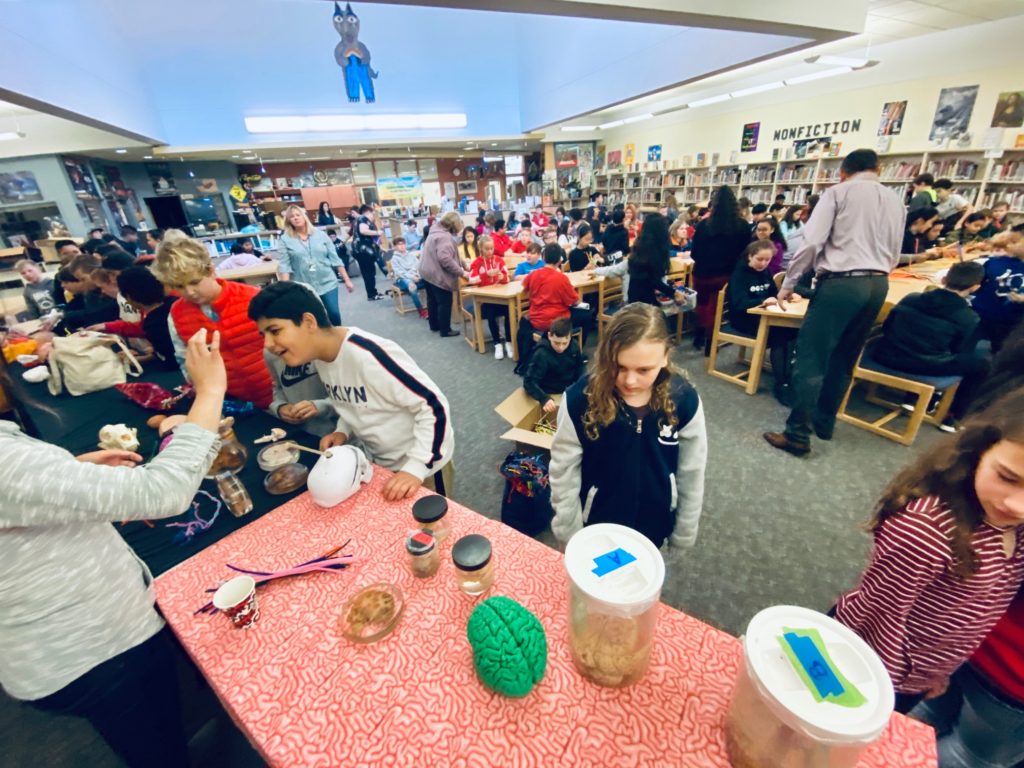
A striking glass depiction of Coyote, the Trickster, hovers above students in their bright, spacious library, part of an extraordinary work by the late Vancouver artist Ruth Brockmann – who included a brain!
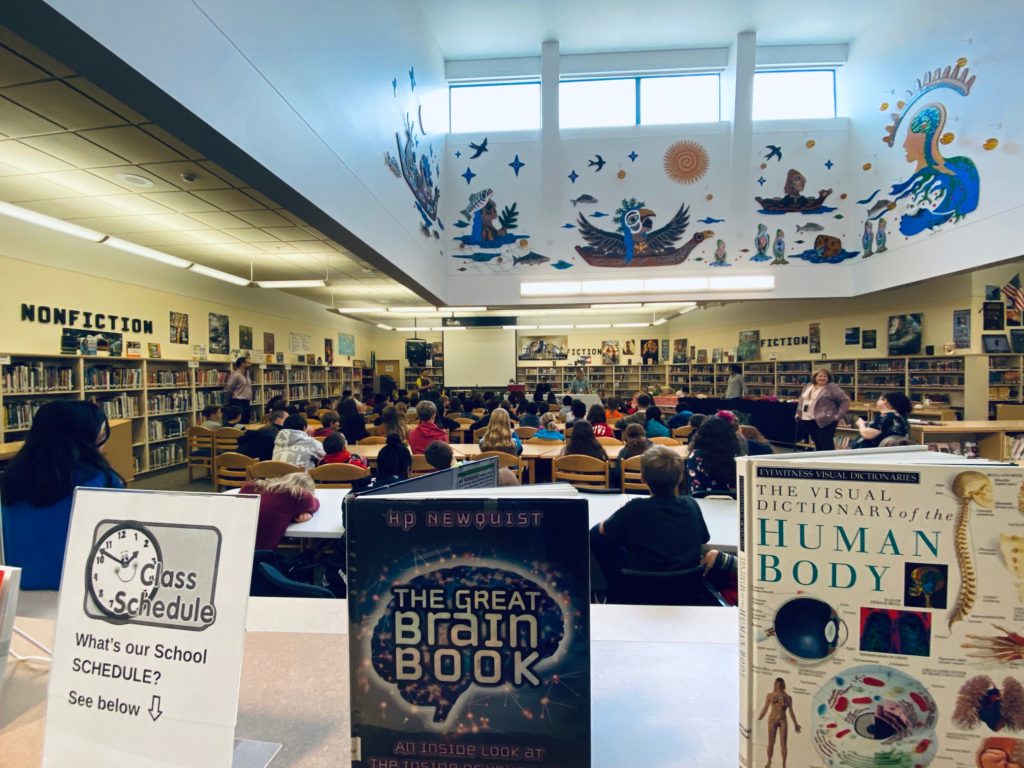
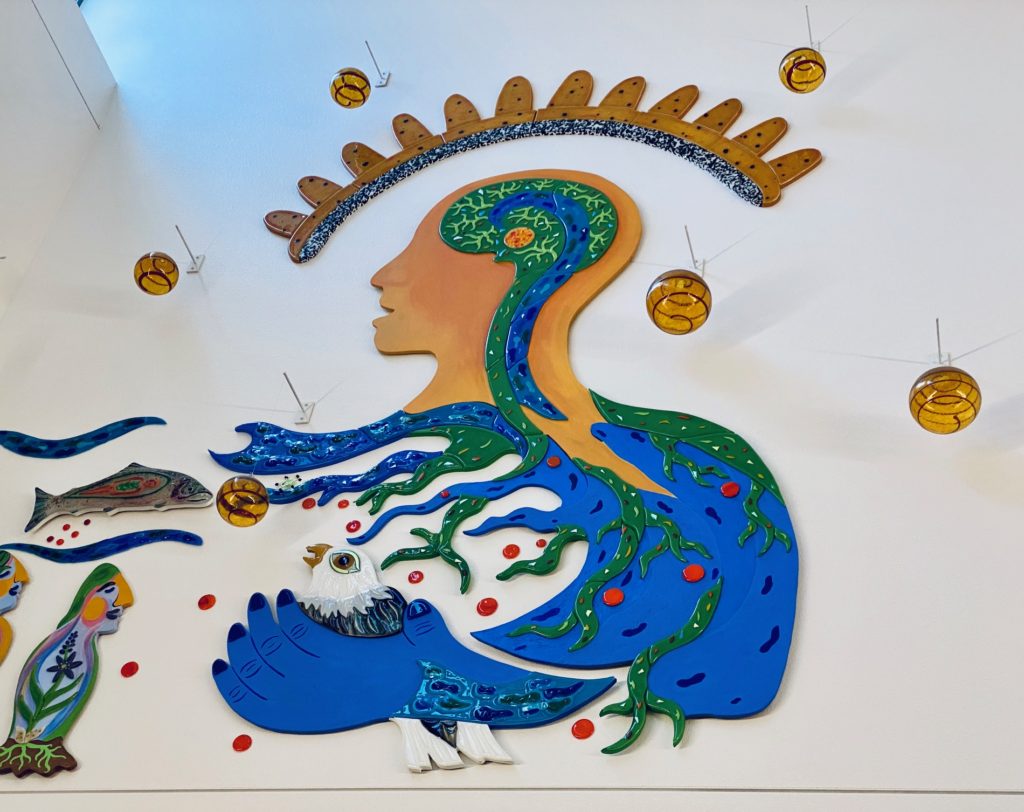
Visiting Shahala with our cerebral specimens, creative art projects and dedicated volunteers is so much fun, with eager kids who ask us challenging and fascinating questions (for example: are brains edible?)!
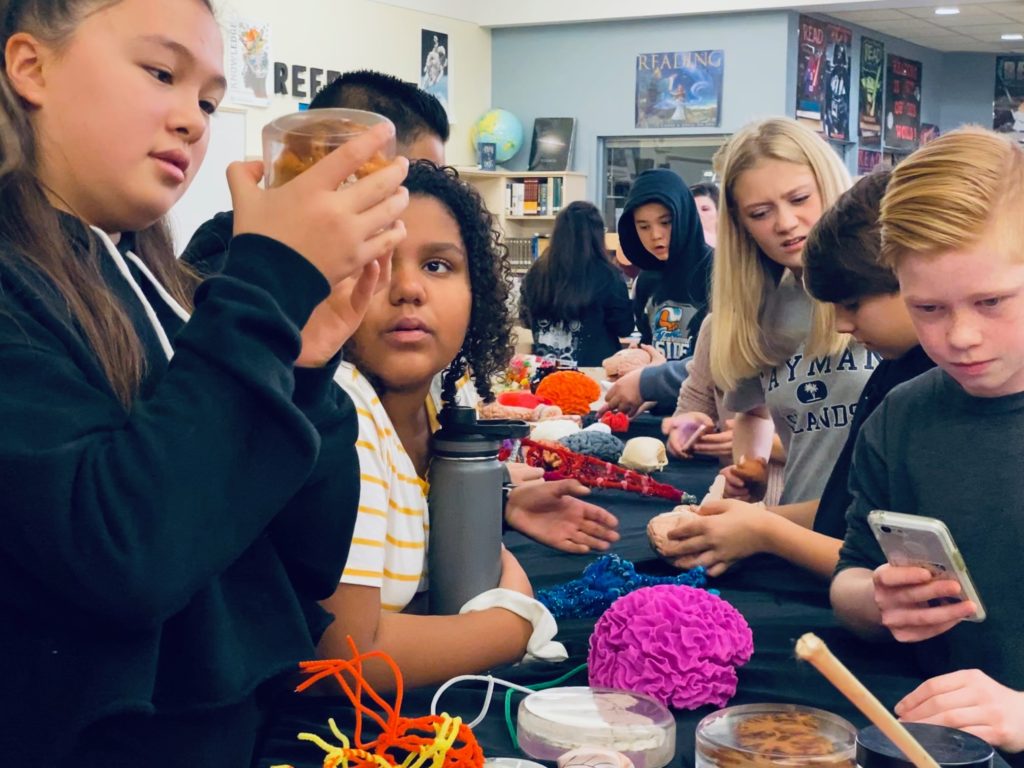
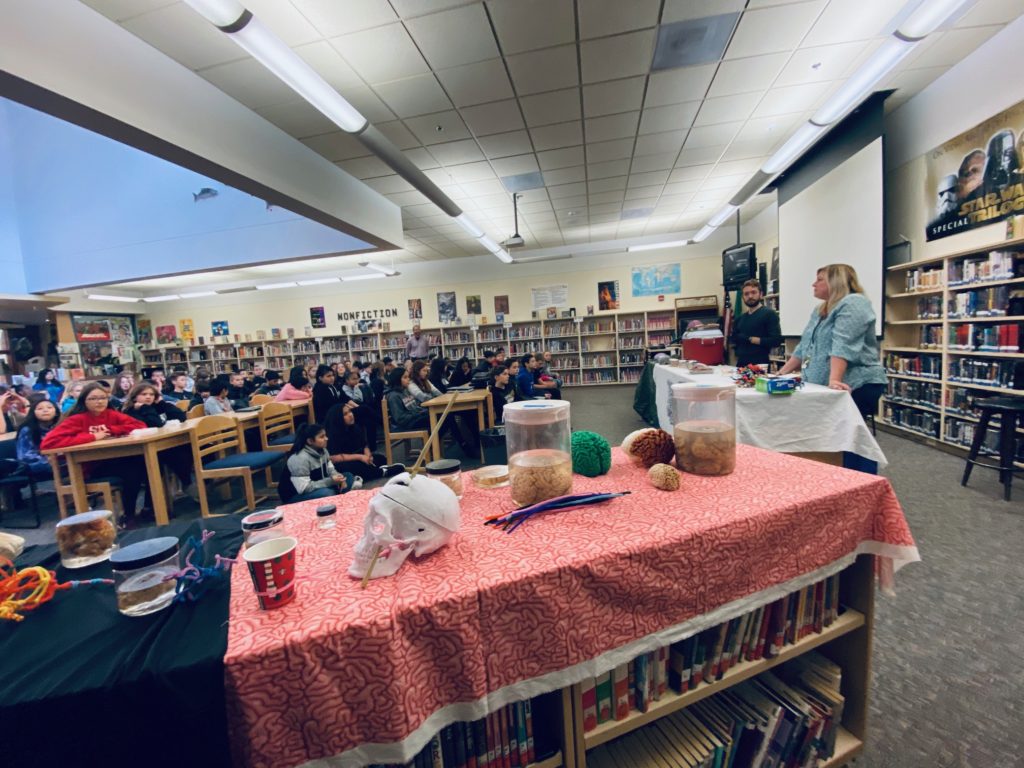
We’ve written extensively about Shahala in earlier posts, covering diverse topics brought up by these curious students, including research on gun violence, raccoon brains, dreams and night terrors, and how our right and left brain hemispheres compare…
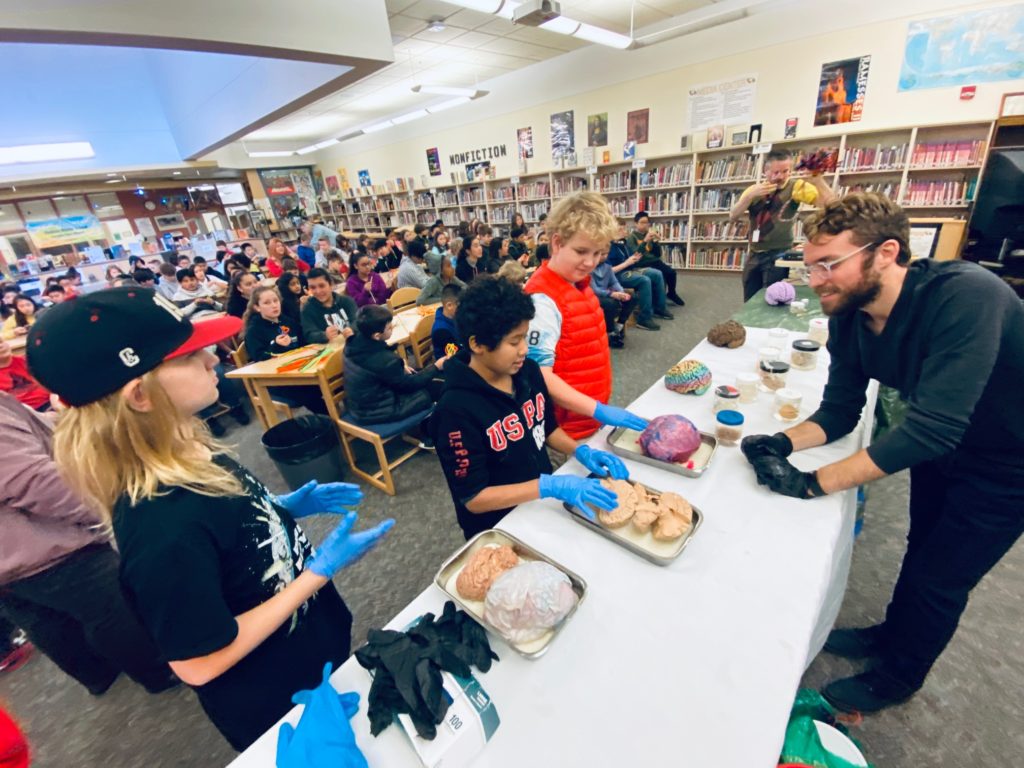
LEARN MORE: Trickster Brains @ Shahala
LEARN MORE: Are brains edible?
LEARN MORE: Synapses @ Shahala!
This month we returned to Vancouver with more accomplished and enthusiastic outreach volunteers from Portland State University, including Drew Sinclair, Maria Galvan-Bravo and Cam Howard, along with Aaron Eisen from NUNM and Denesa Lockwood from OHSU.
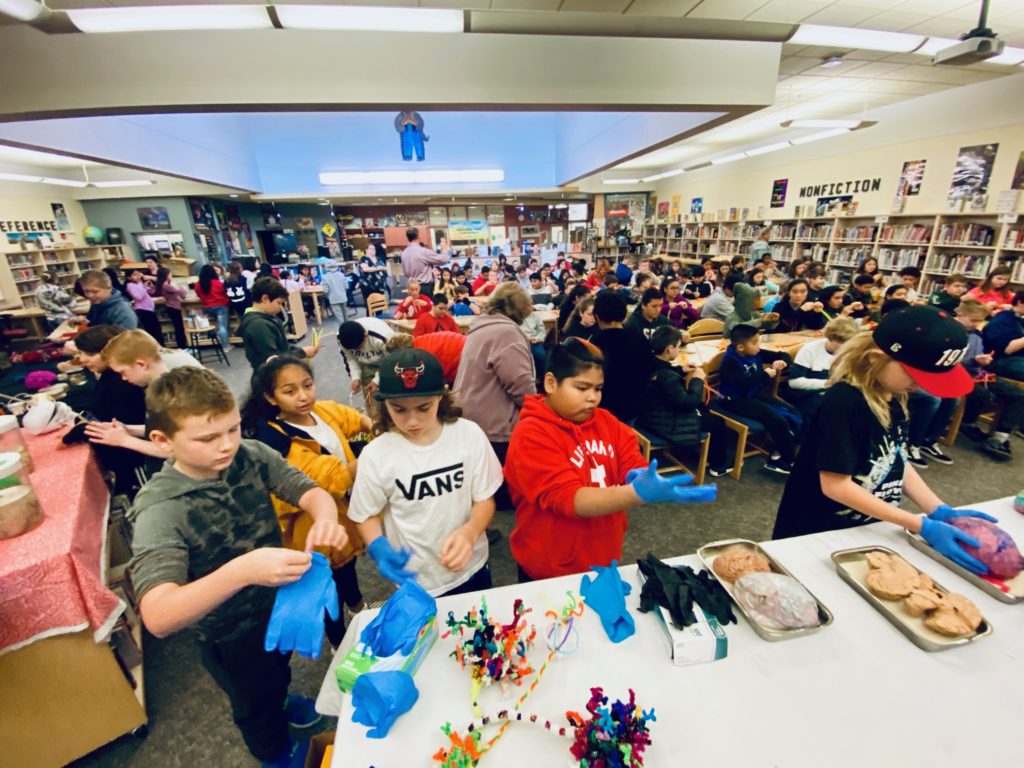
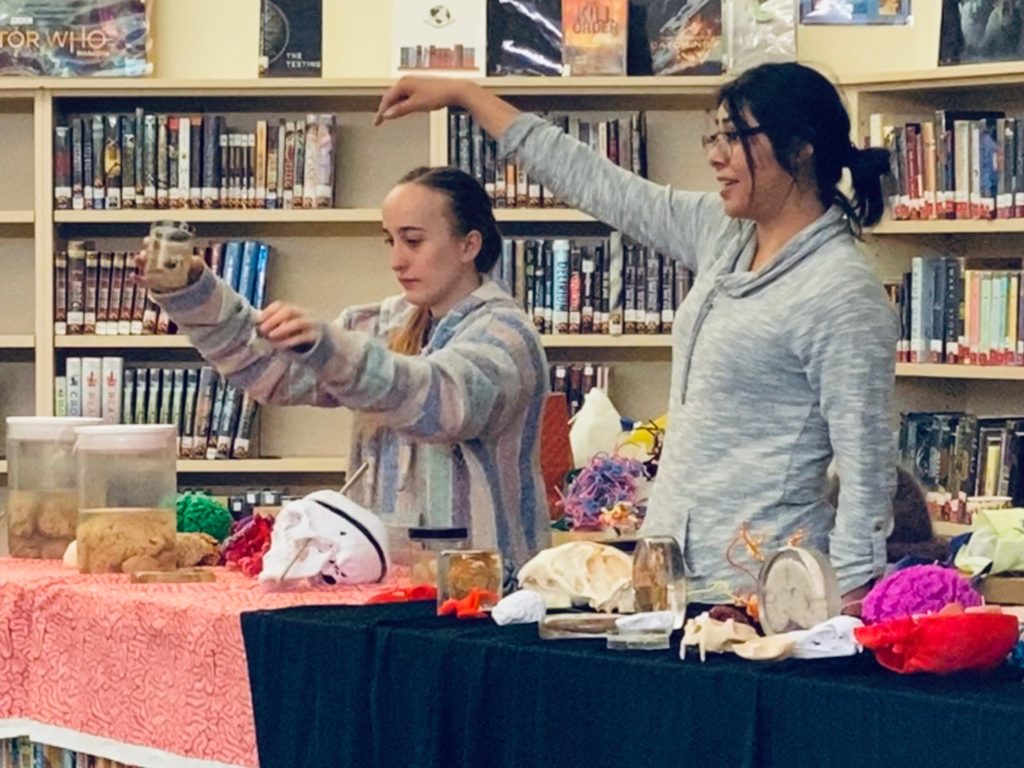
We brought plenty of donuts and a coffee traveler – and spent the next few hours answering questions, making neuro-art and discussing brains with about 360 6th graders!
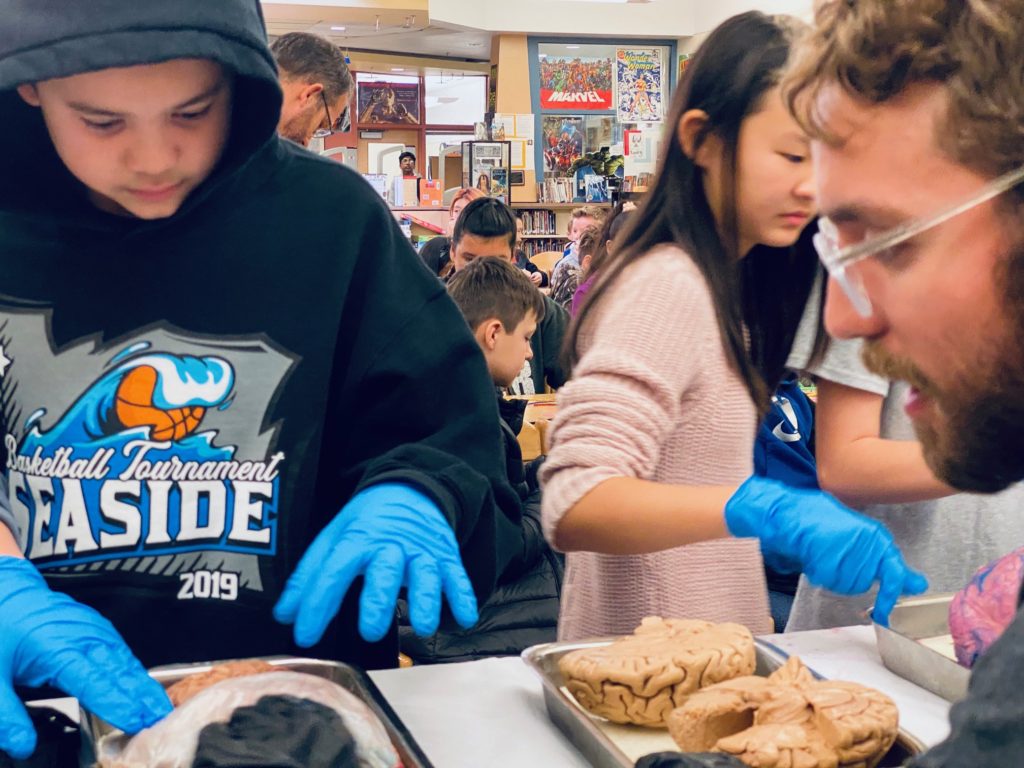
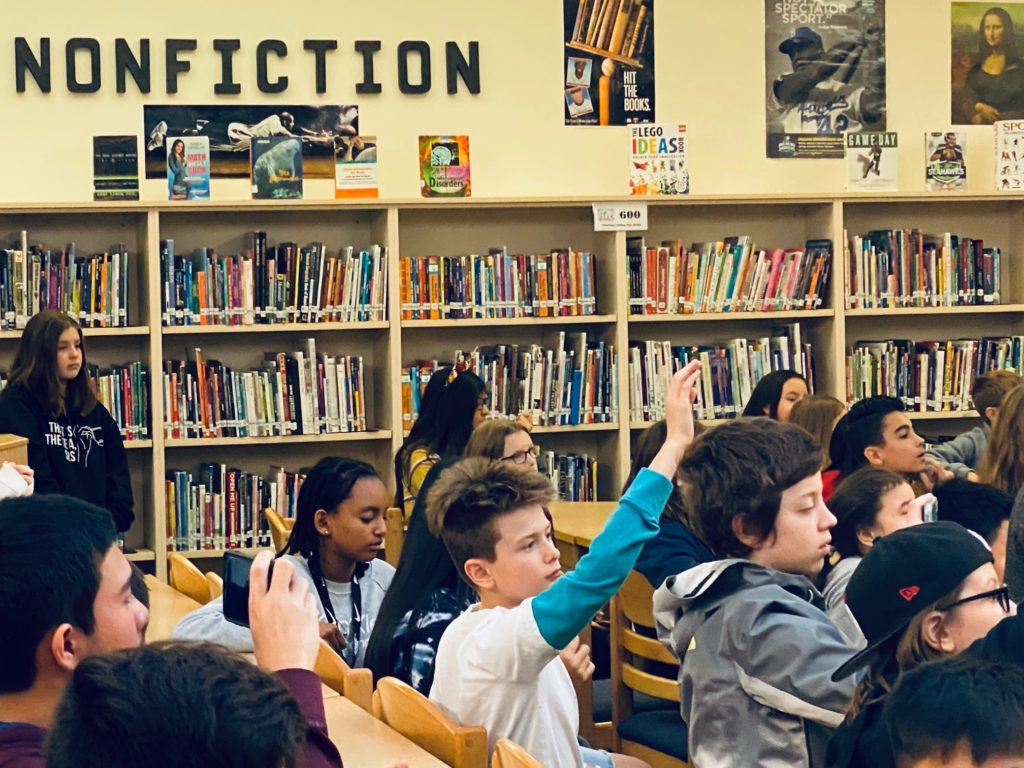
“What causes headaches? What happens with concussions? What is dementia? Why do I get I paralyzed when I sleep? What if you can’t feel any pain? How is the autism brain unique? Is it true that we use only 10% of our brains (um, no :)?”
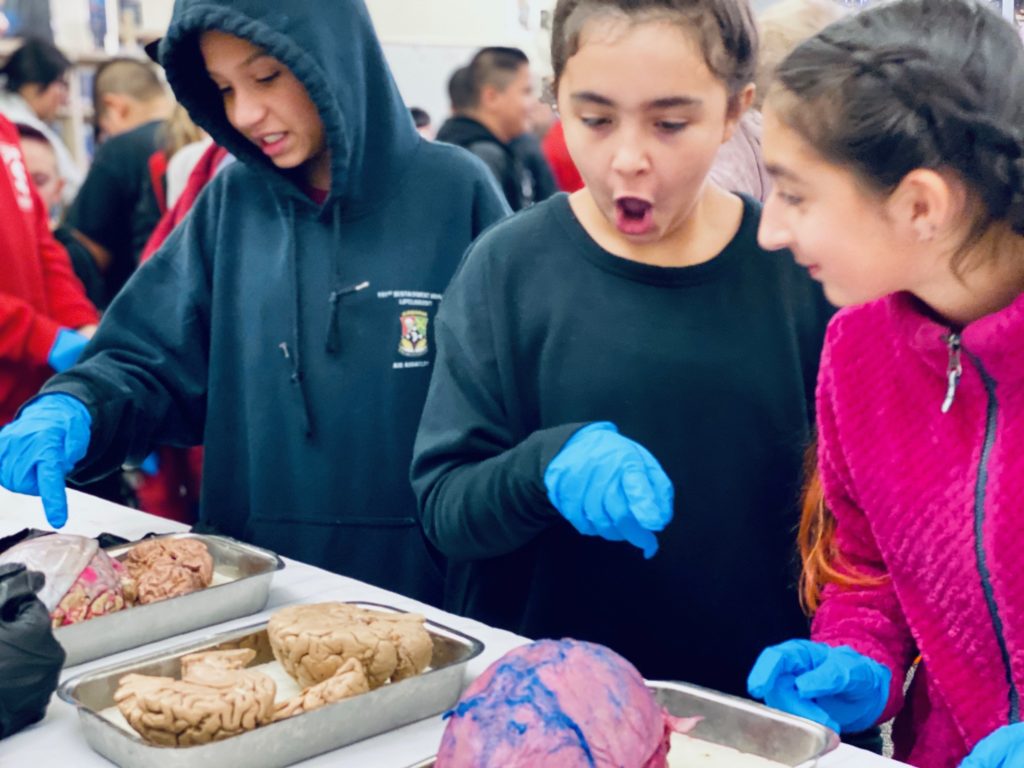
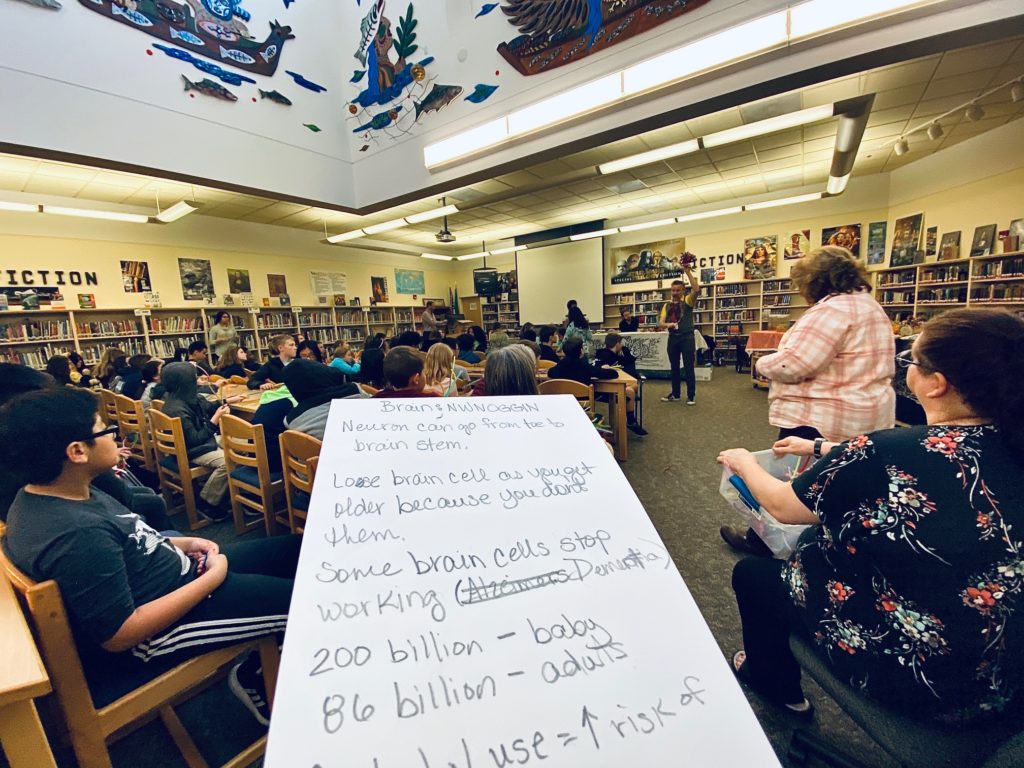
LEARN MORE: NIH Headache Information Page
LEARN MORE: NIH on Teaming up to Tackle Concussion
LEARN MORE: Sleep Paralysis, a Medical Condition with a Diverse Cultural Interpretation
LEARN MORE: Congenital insensitivity to pain
LEARN MORE: NIH on Autism Spectrum Disorder
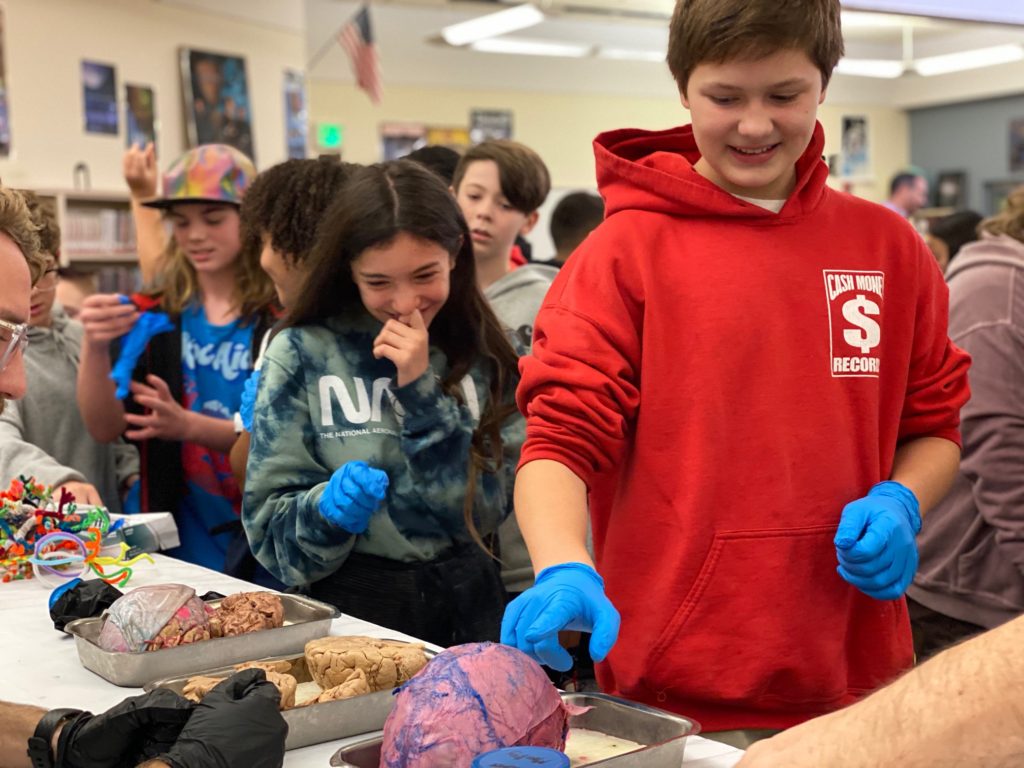
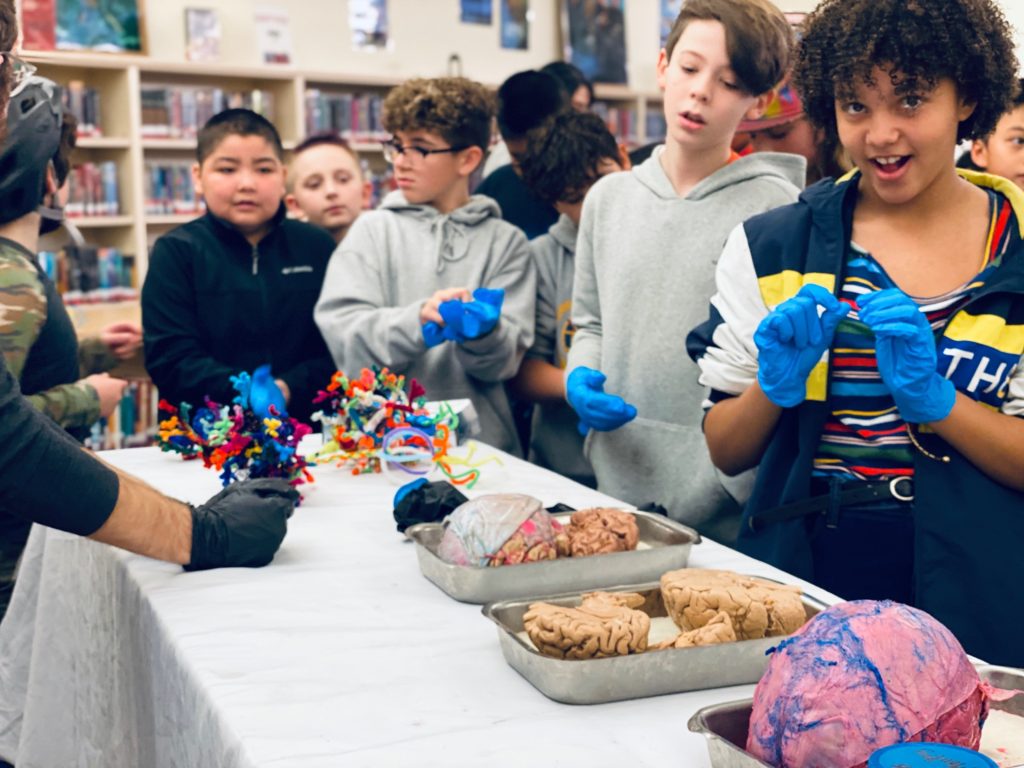
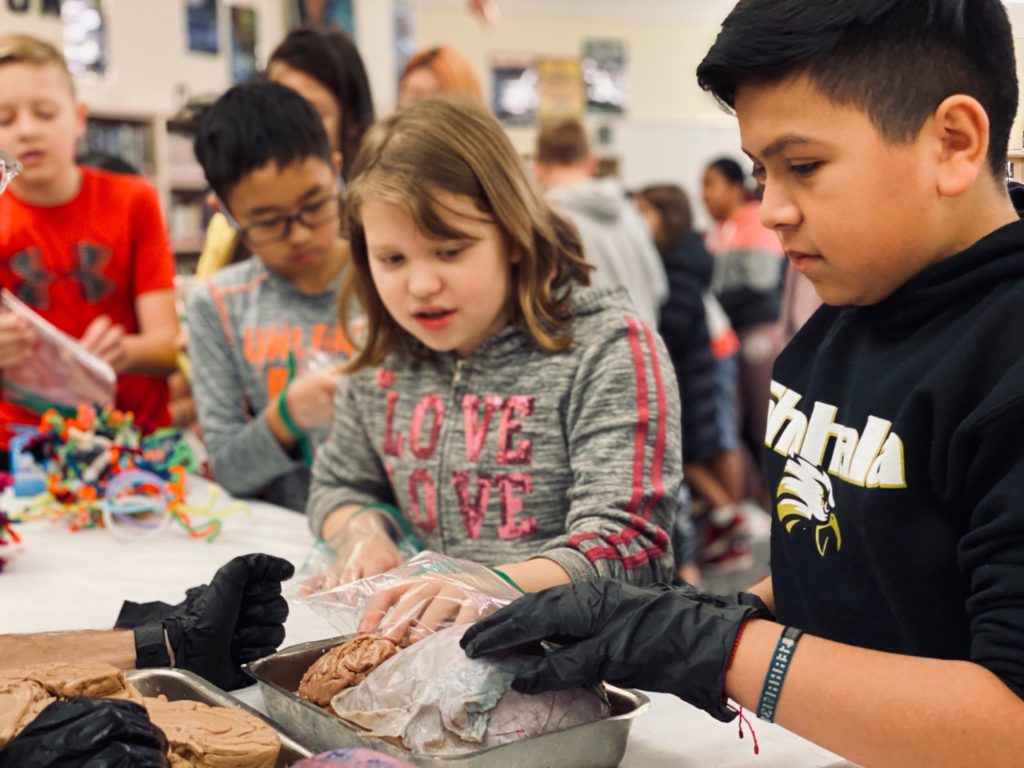
Keith Johnson, a biology teacher, agreed to have his ulnar nerve stimulated by our Noggin Resource Council member for Communication Aaron Eisen, using the remarkable Human to Human interface from Backyard Brains..!
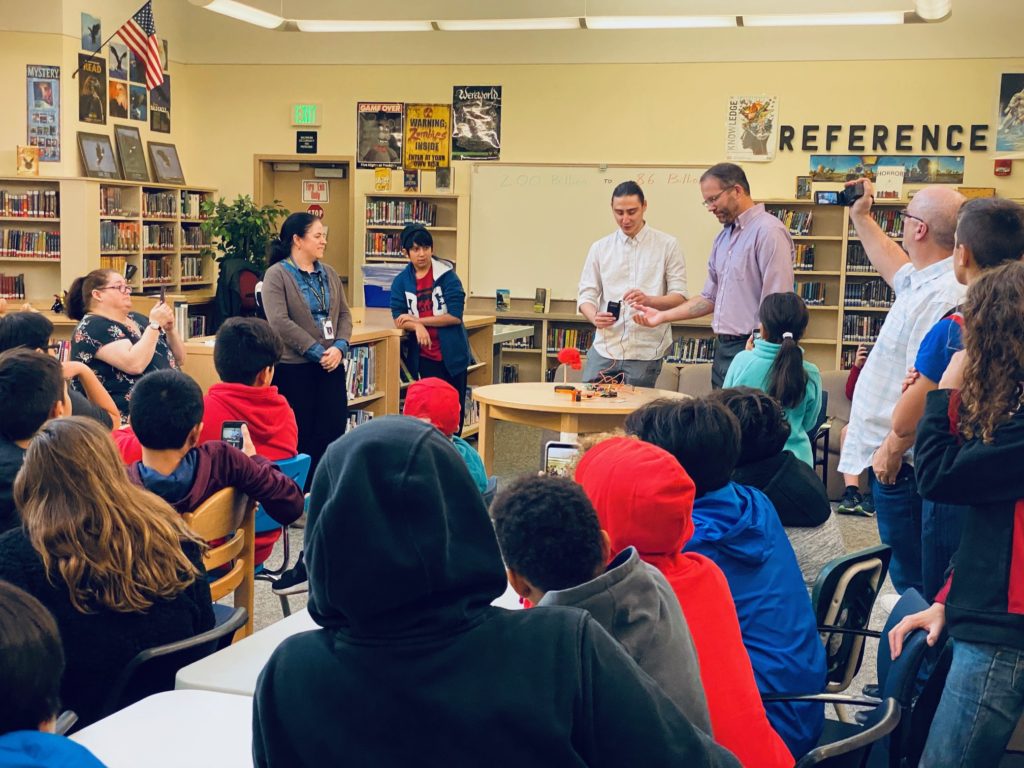
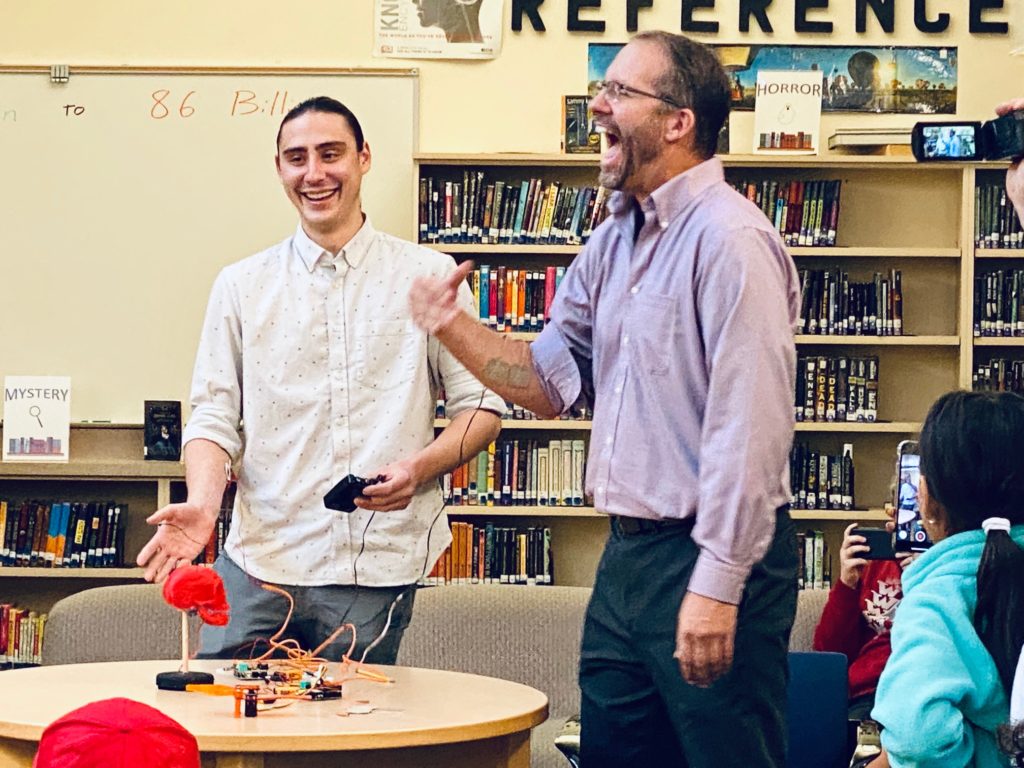
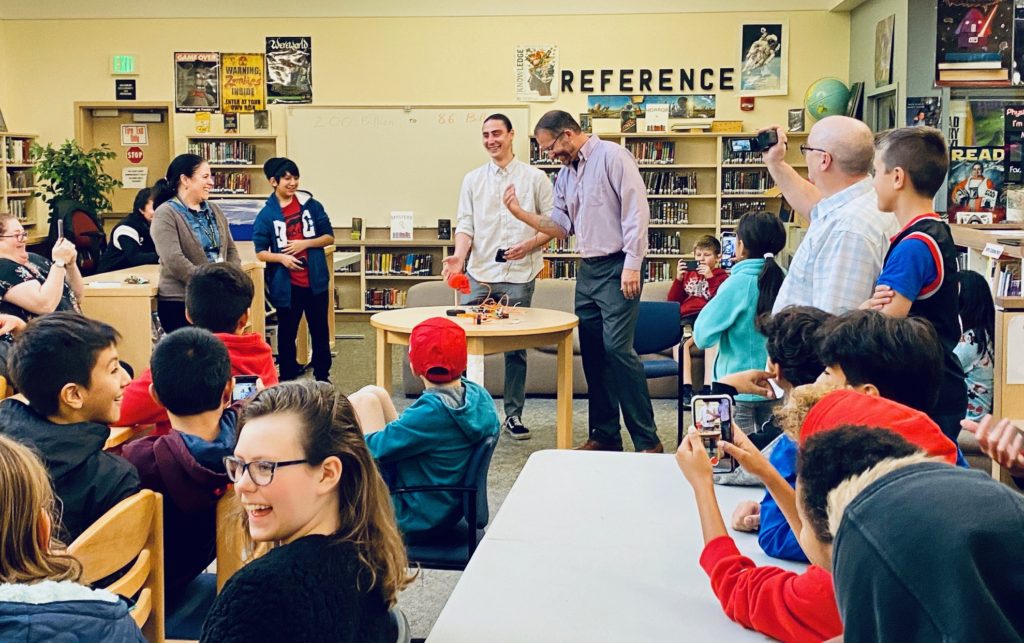
LEARN MORE: Brain Hacking is Electric!
Students also crafted colorful brain cells out of pipe cleaners, while asking further questions prompted by twisting rainbows of dendrites and axon collaterals…
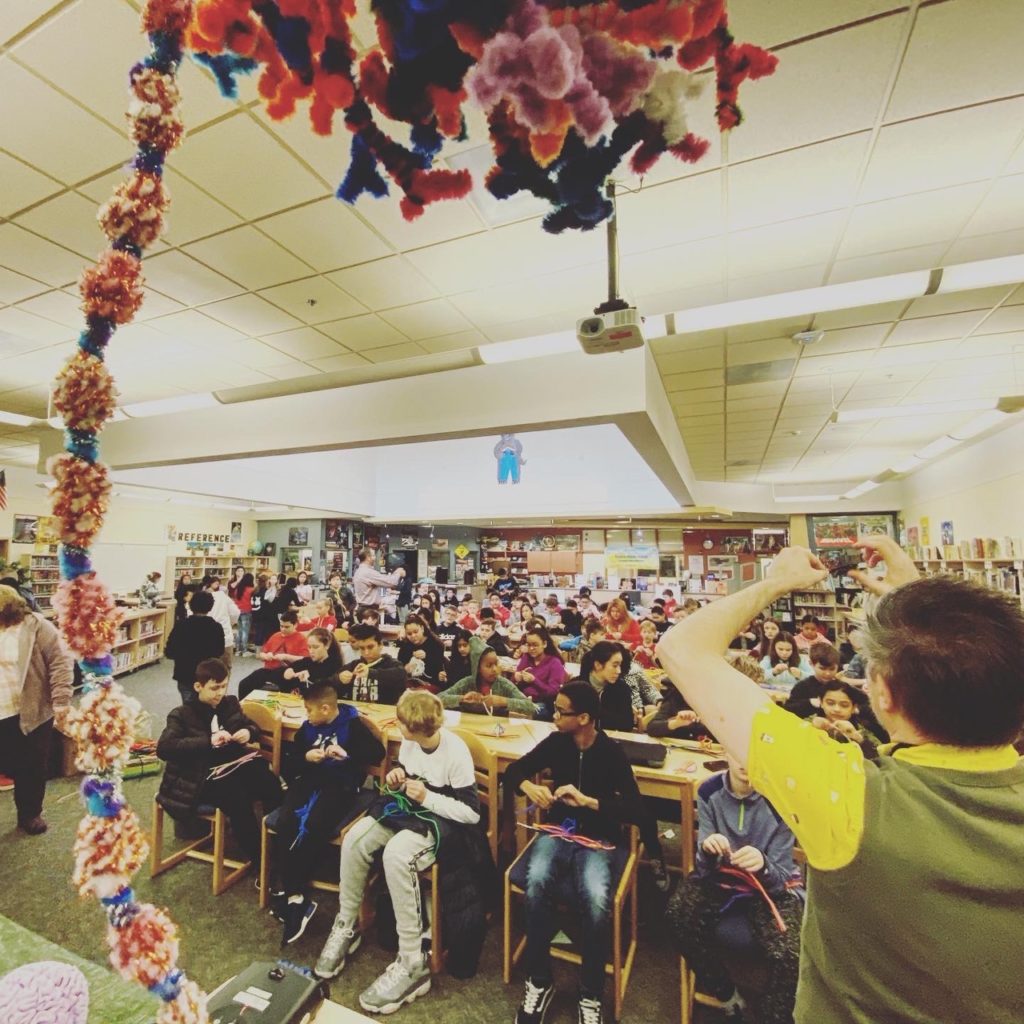
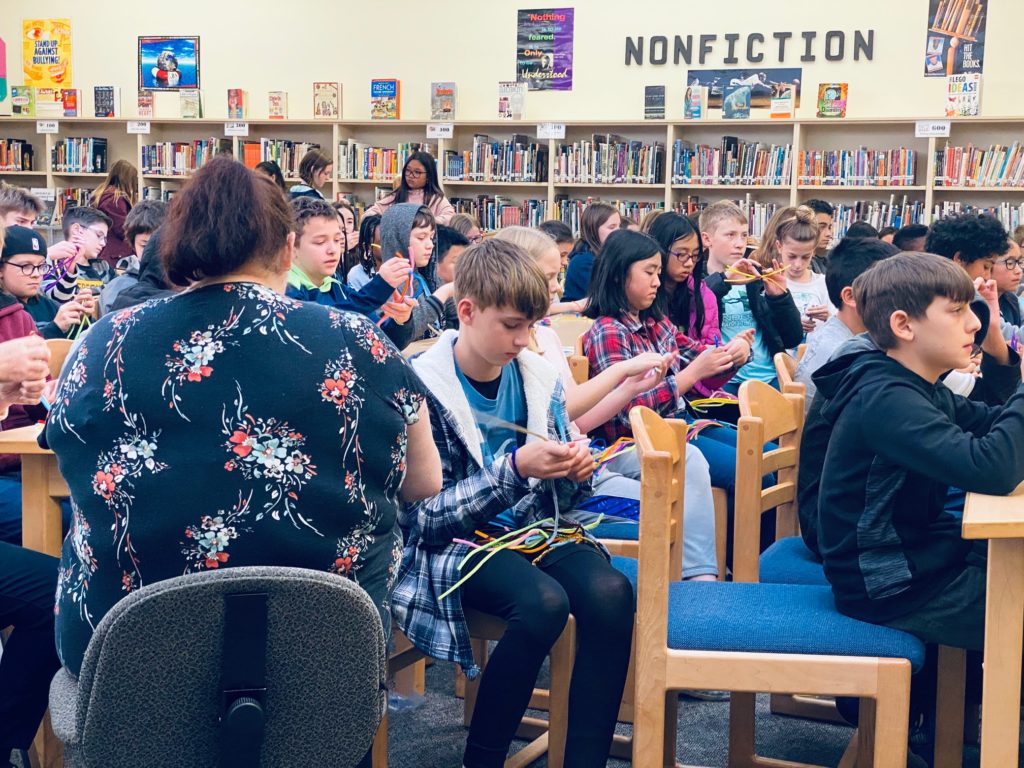
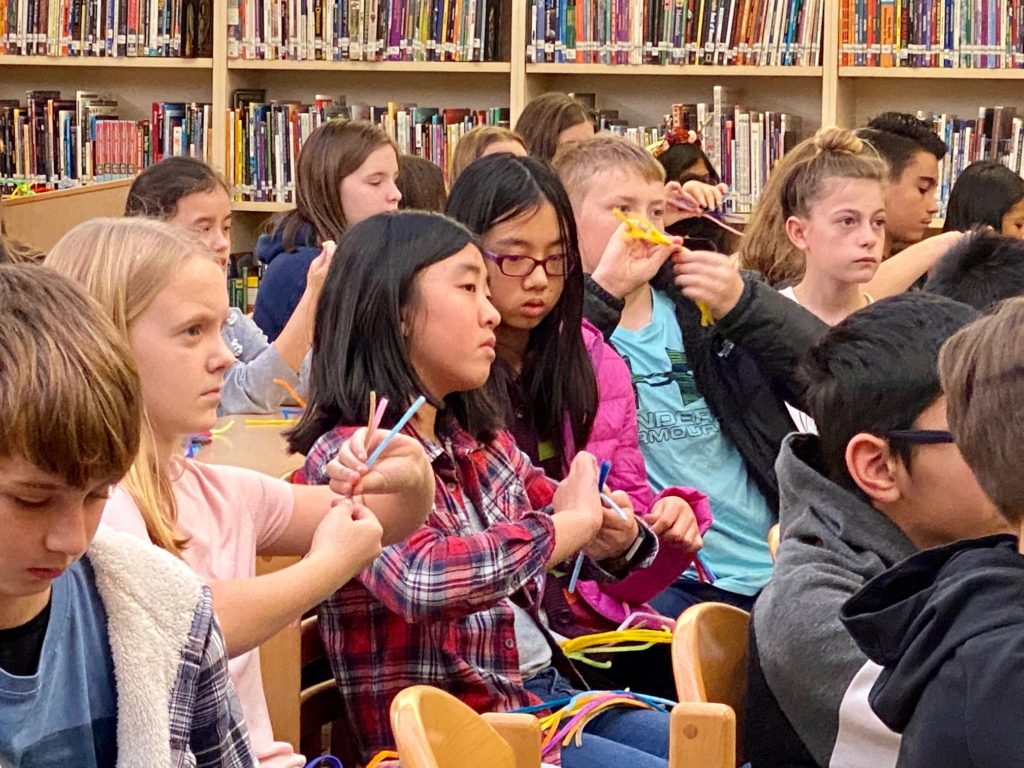
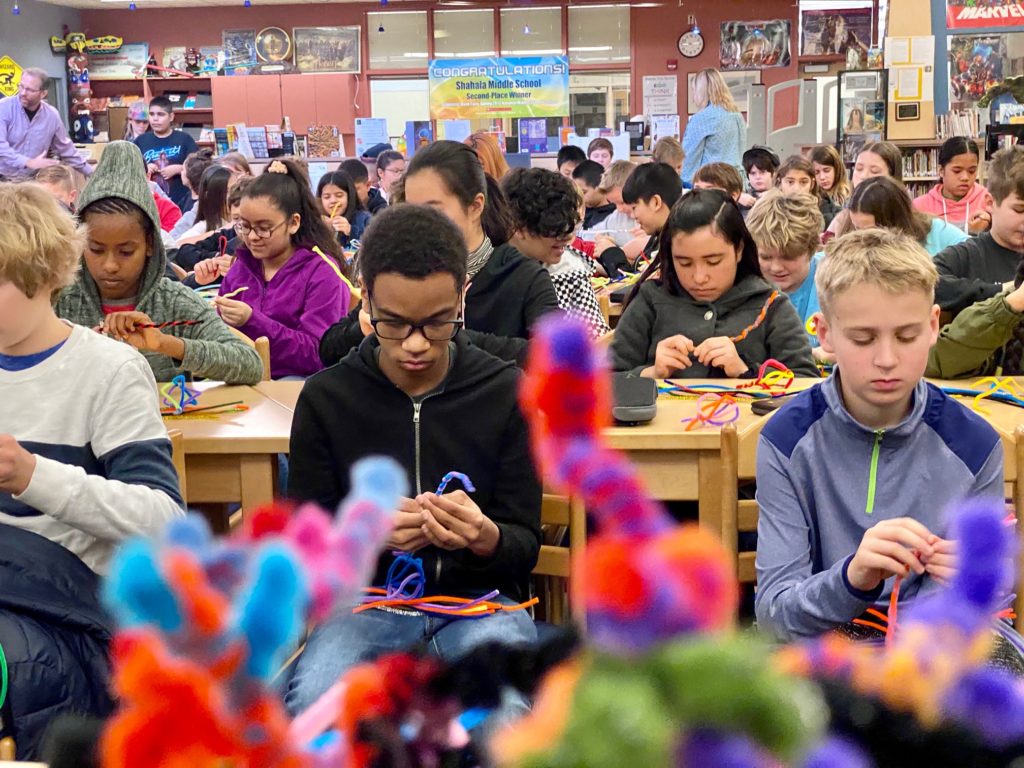
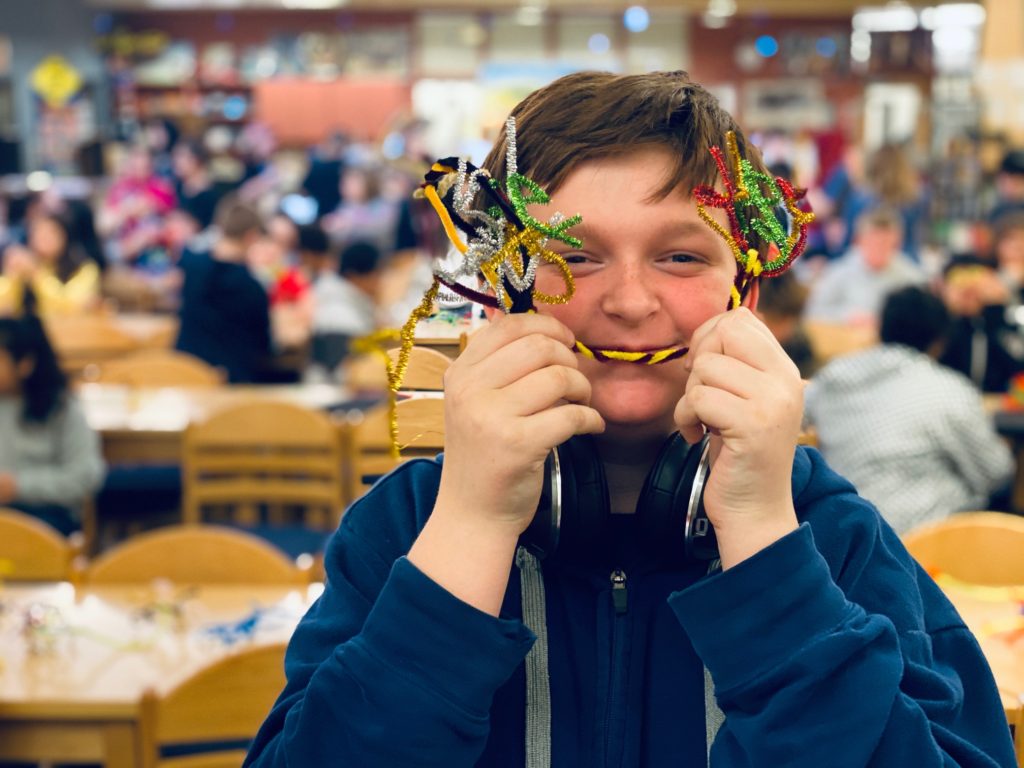
MAKE YOUR OWN: MAKE A PIPE CLEANER NEURON (& More!)
The brain is the central fact and adventure of K-12…
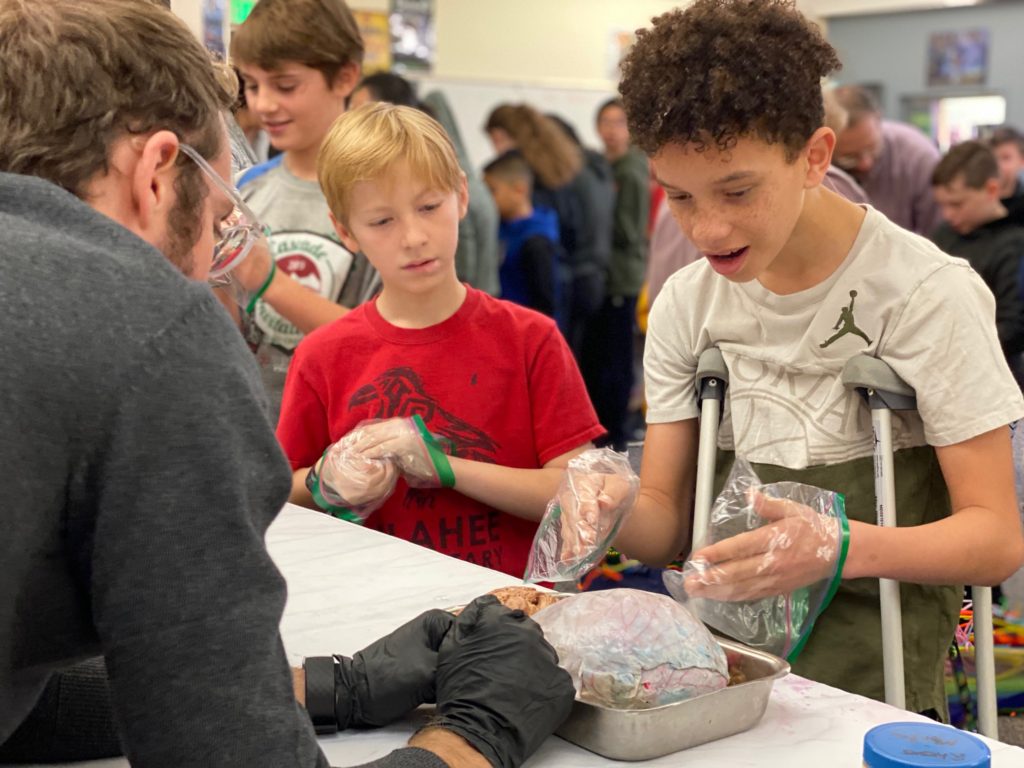
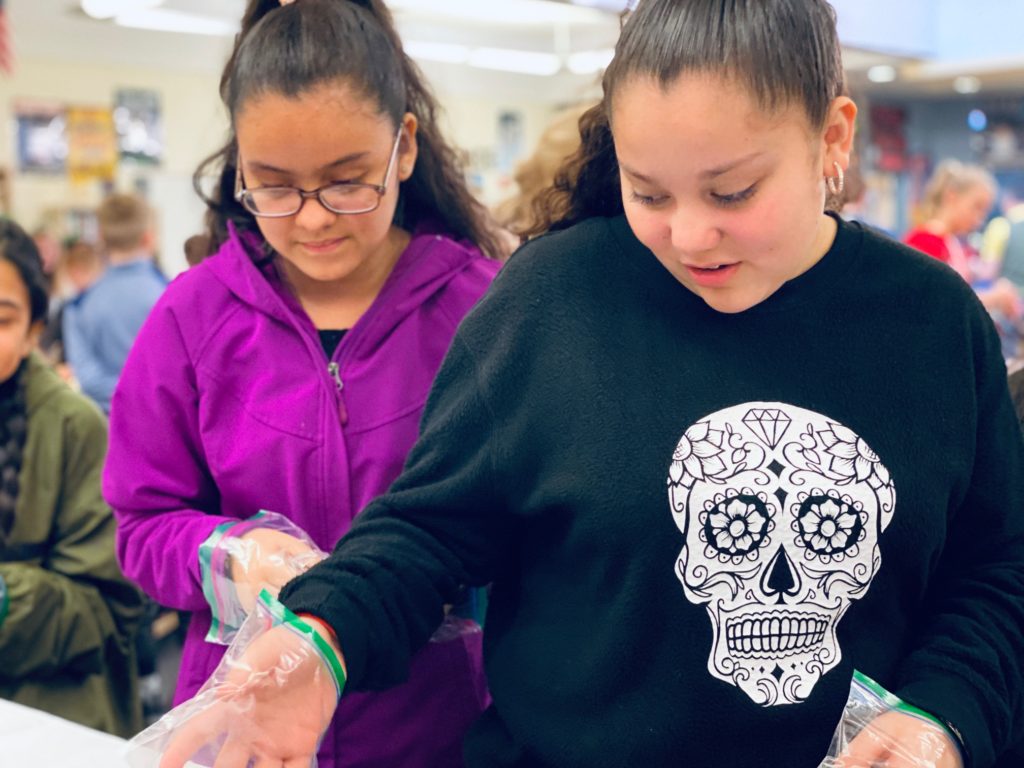
Yet state and federal education standards still barely mention it!
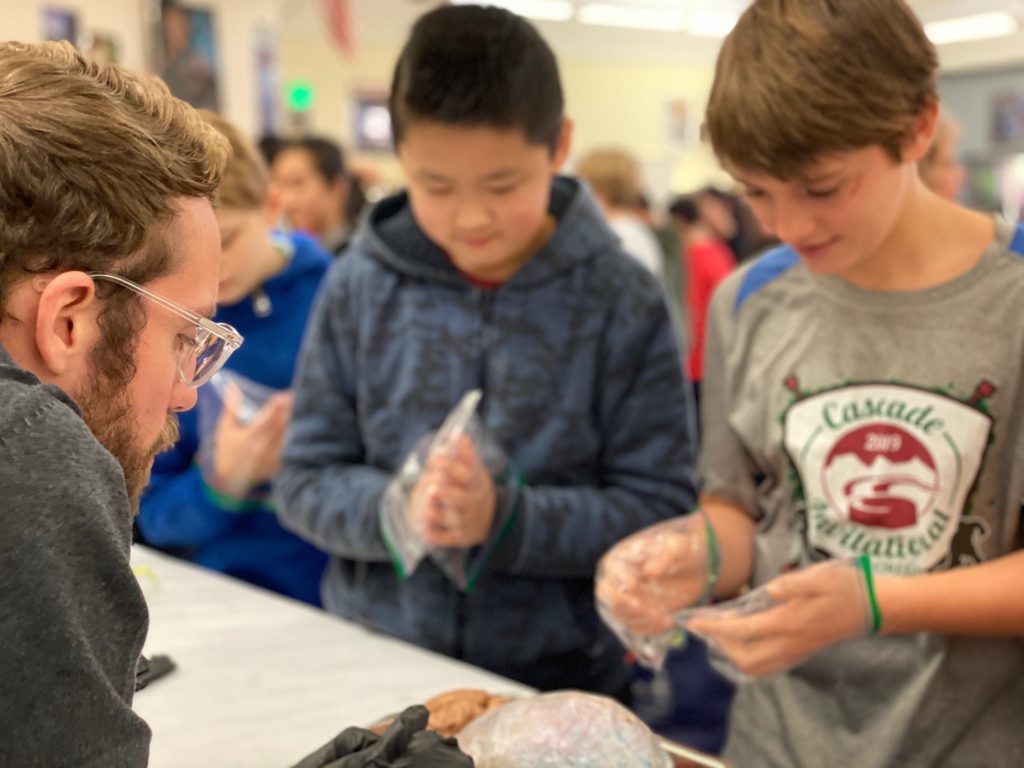
LEARN MORE: Putting brains back in biology
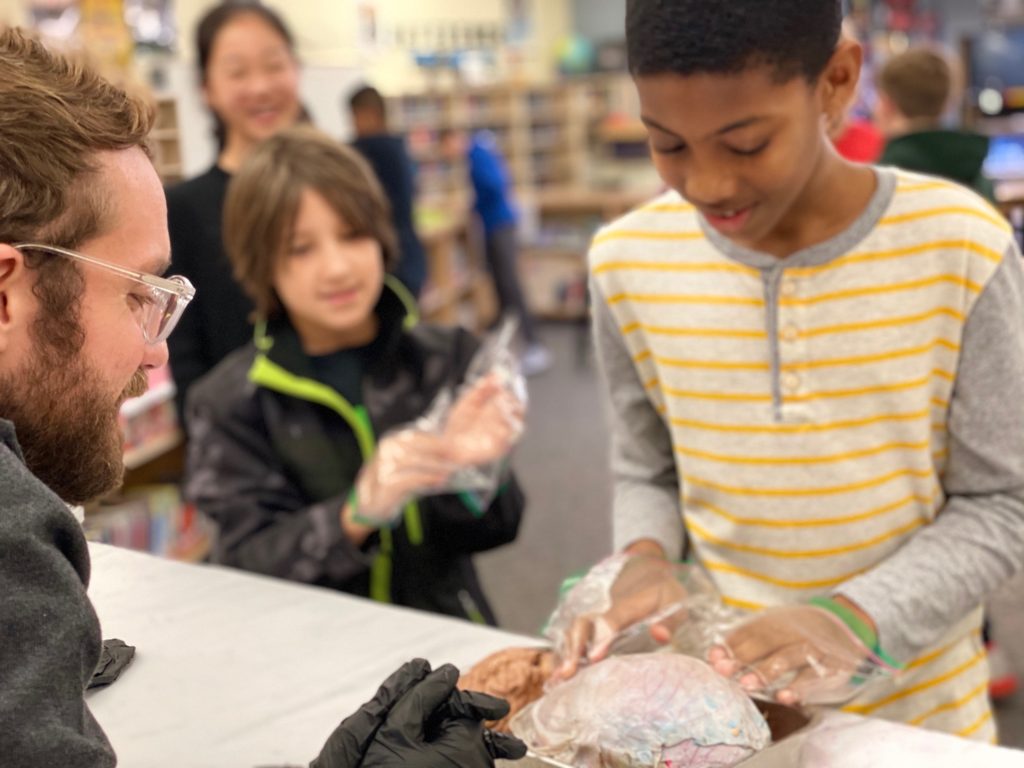
“Much that passes for education is not education at all but ritual. The fact is that we are being educated when we know it least.”
– David P. Gardner
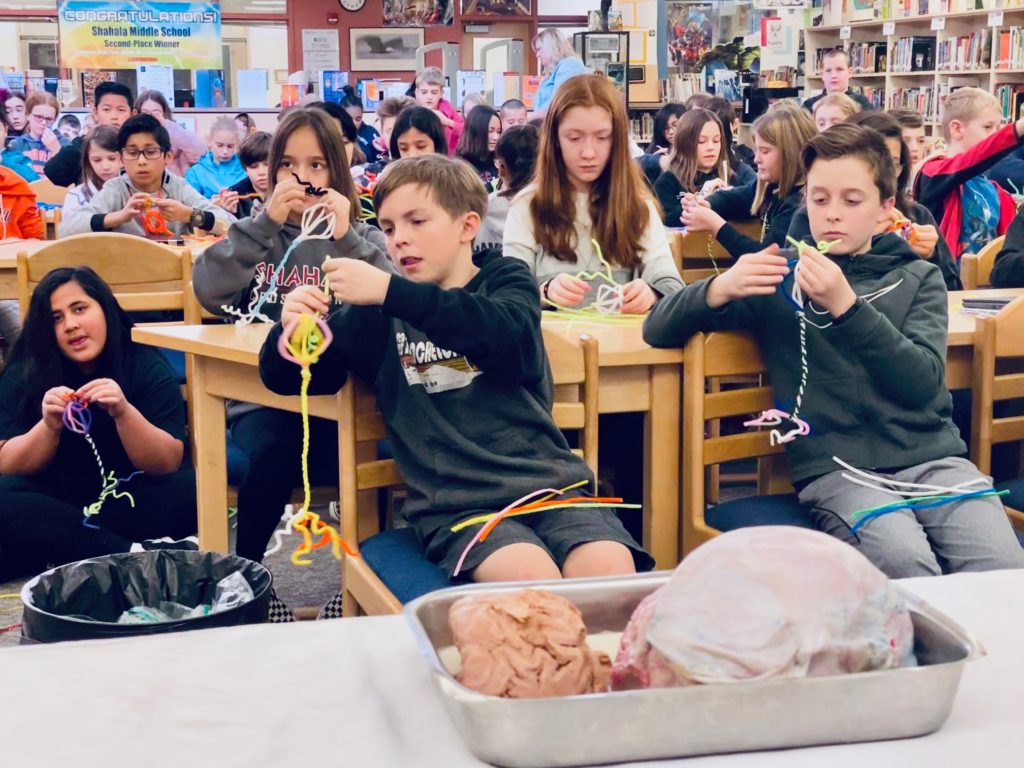
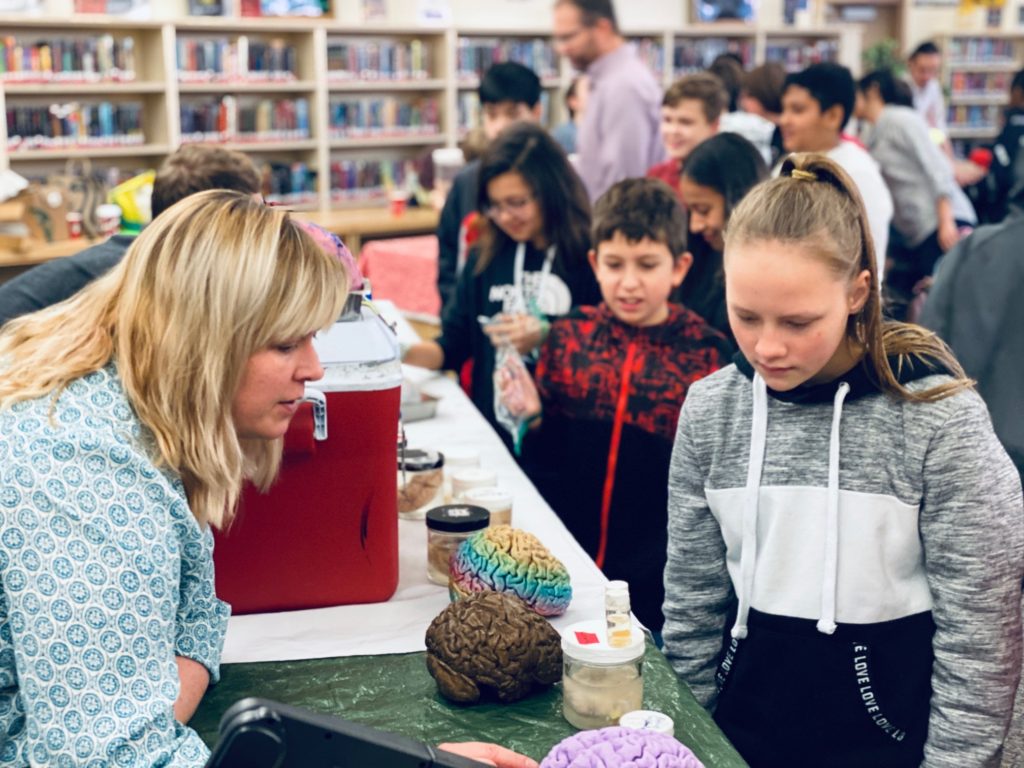
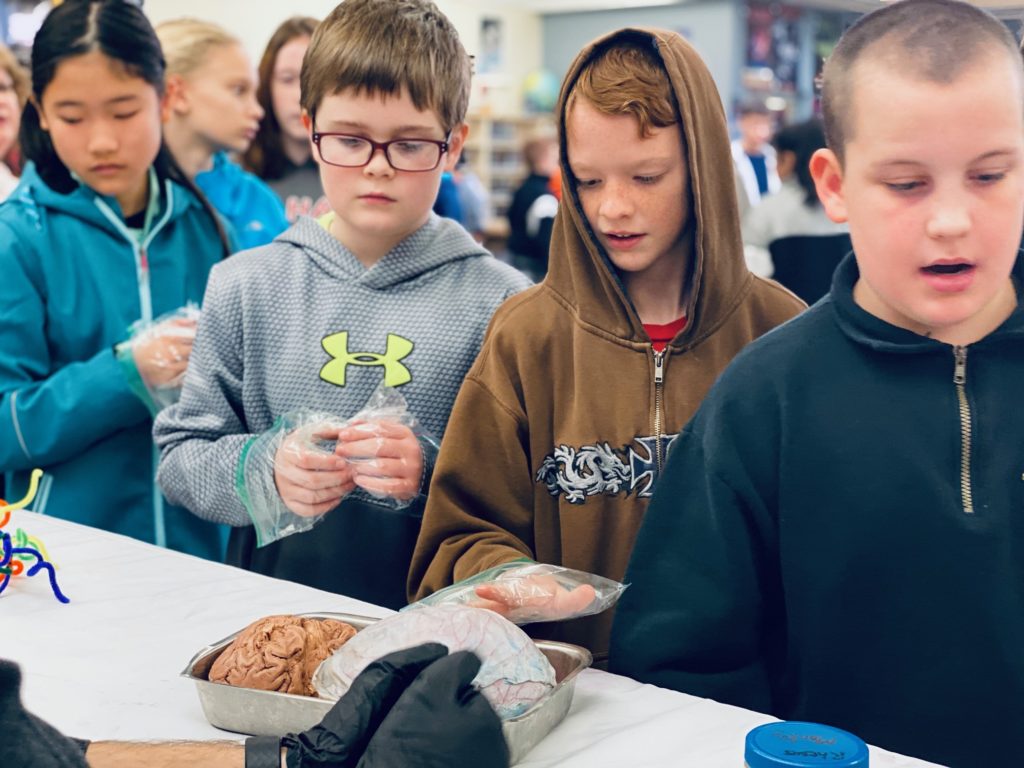
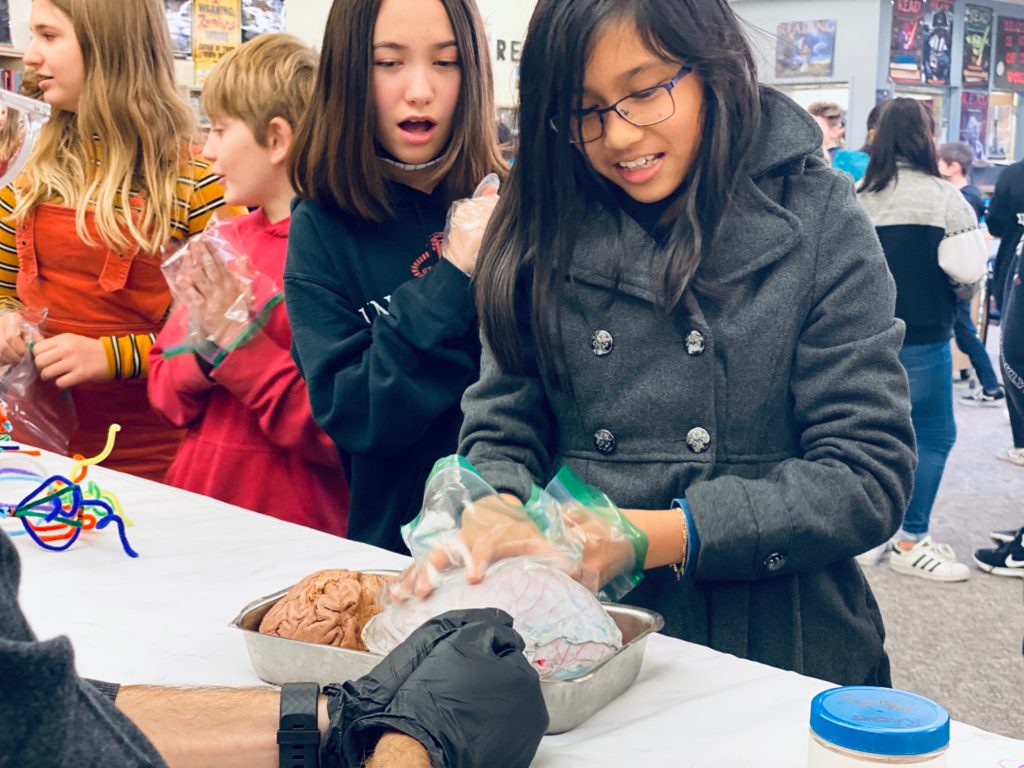
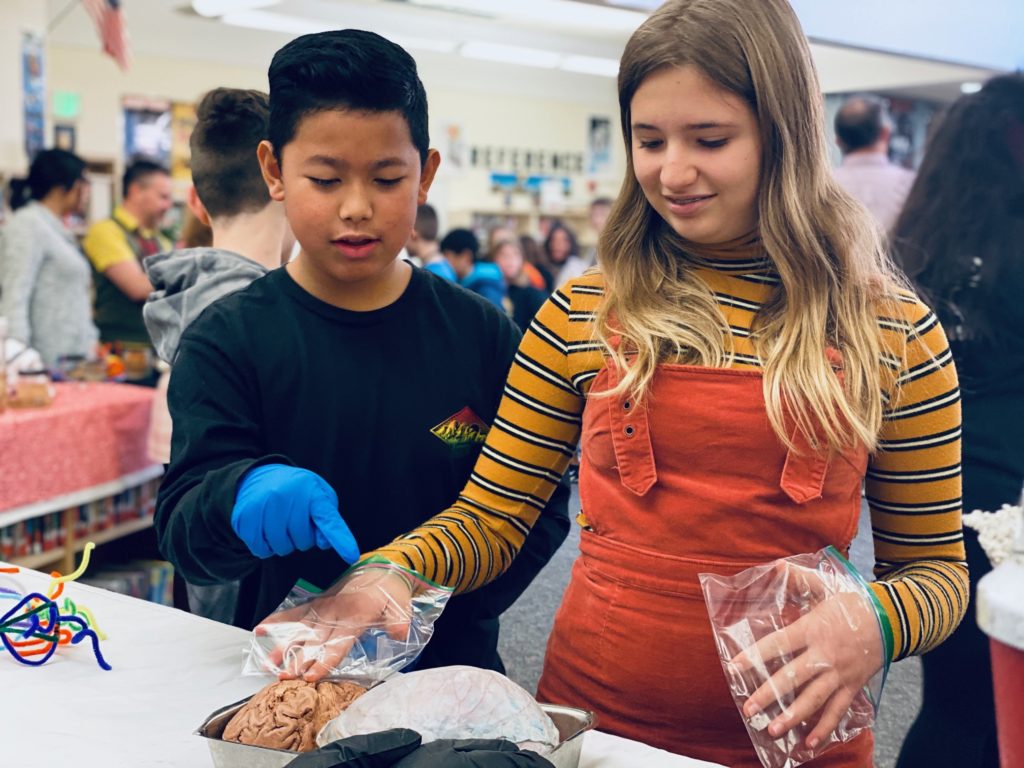
It’s hard to underestimate the positive impact of actually going places for outreach as volunteers, genuinely listening to each other, inspiring and engaging through exploration and art, and connecting where our stories intersect.
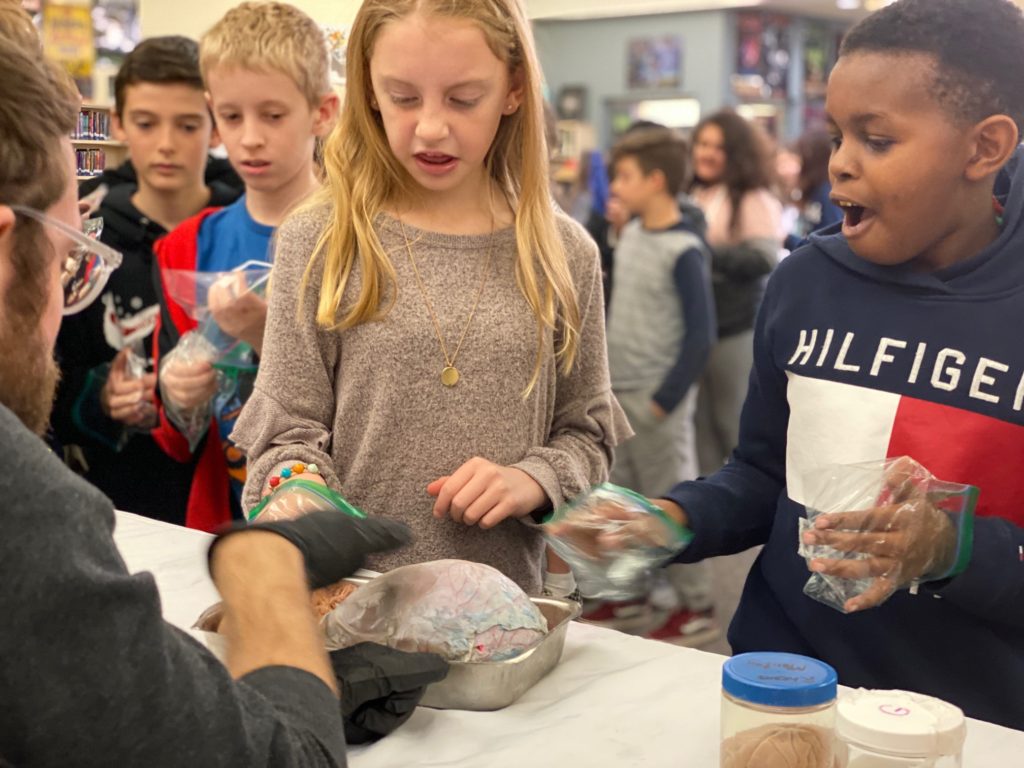
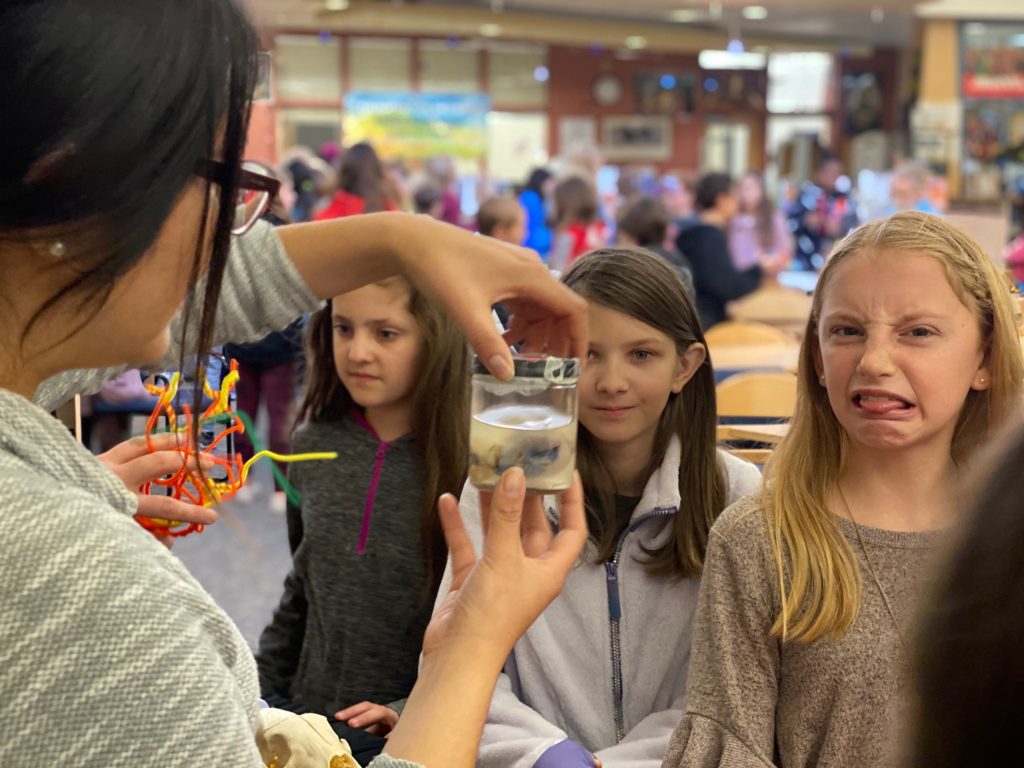
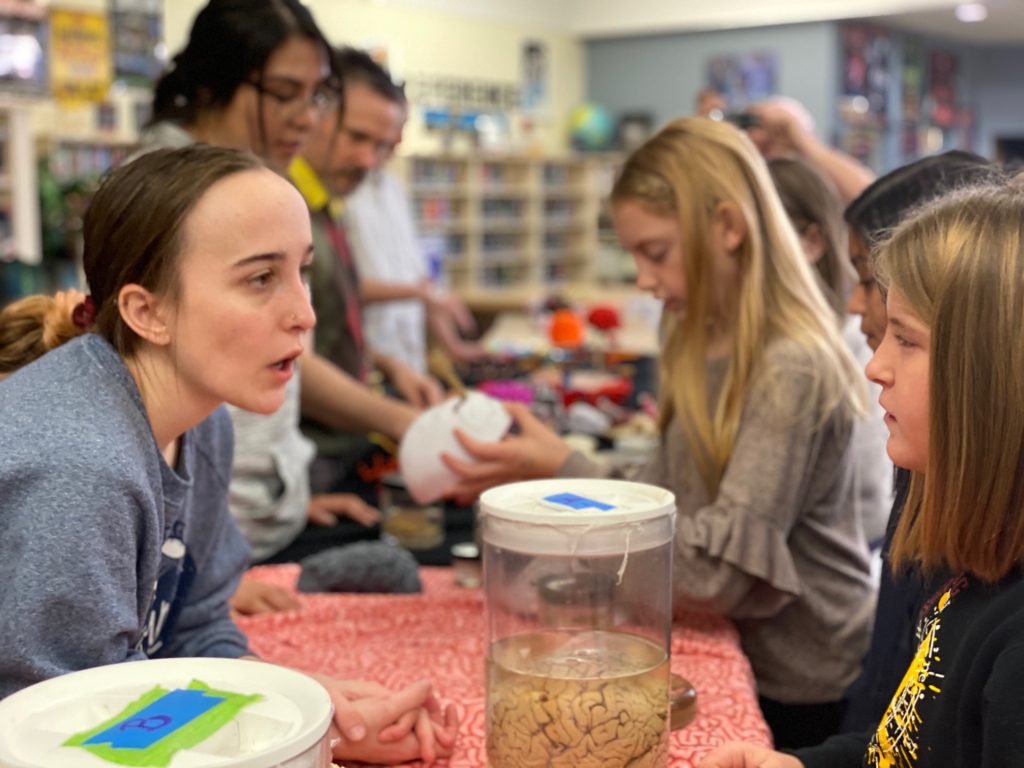
We’ve reached over 35,000 students since 2012 – and regularly encounter young people who still remain inspired by the first time they touched a brain with NW Noggin many years ago!
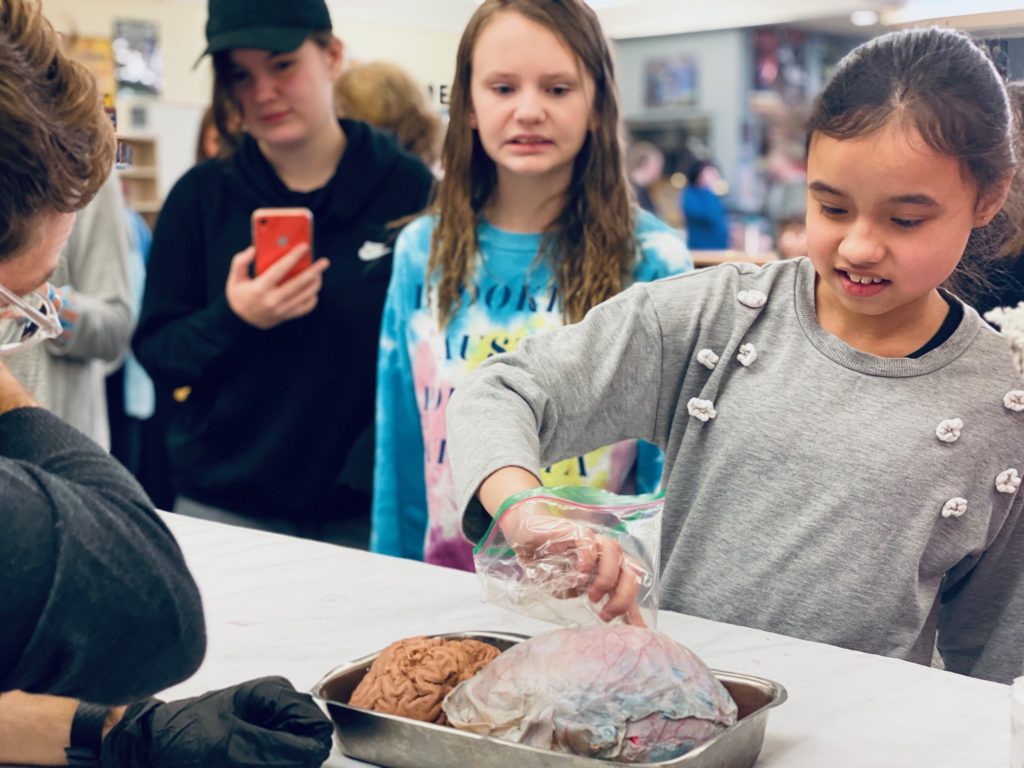
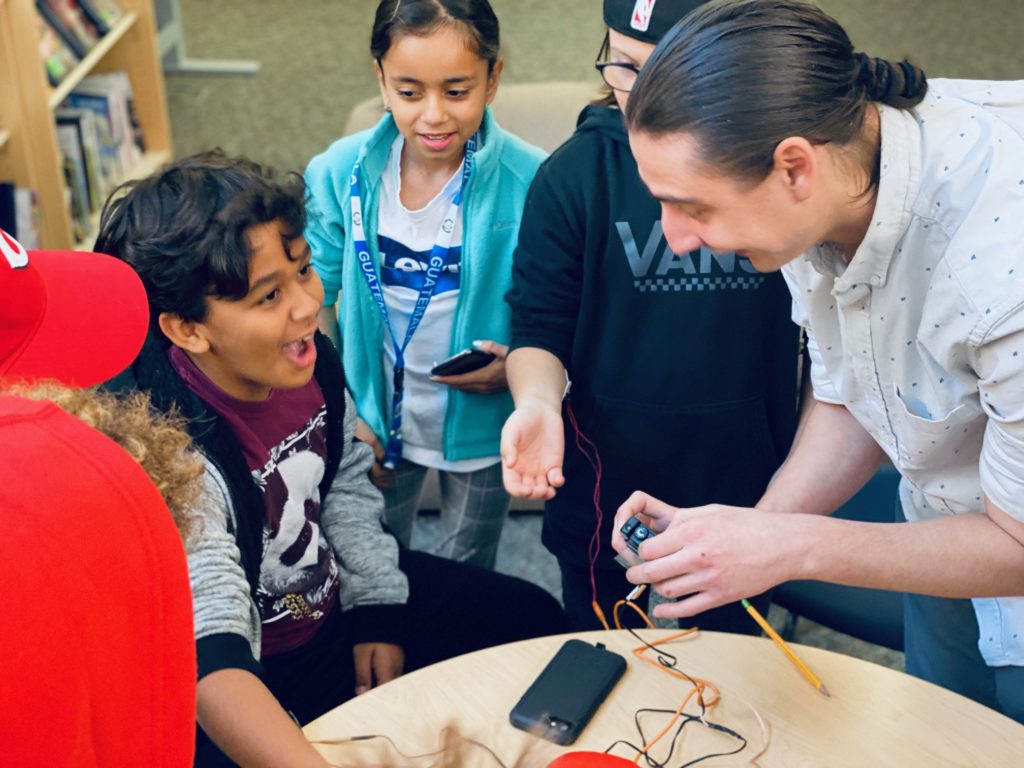
LEARN MORE: What is NW Noggin?
LEARN MORE: Nonprofit Noggins!
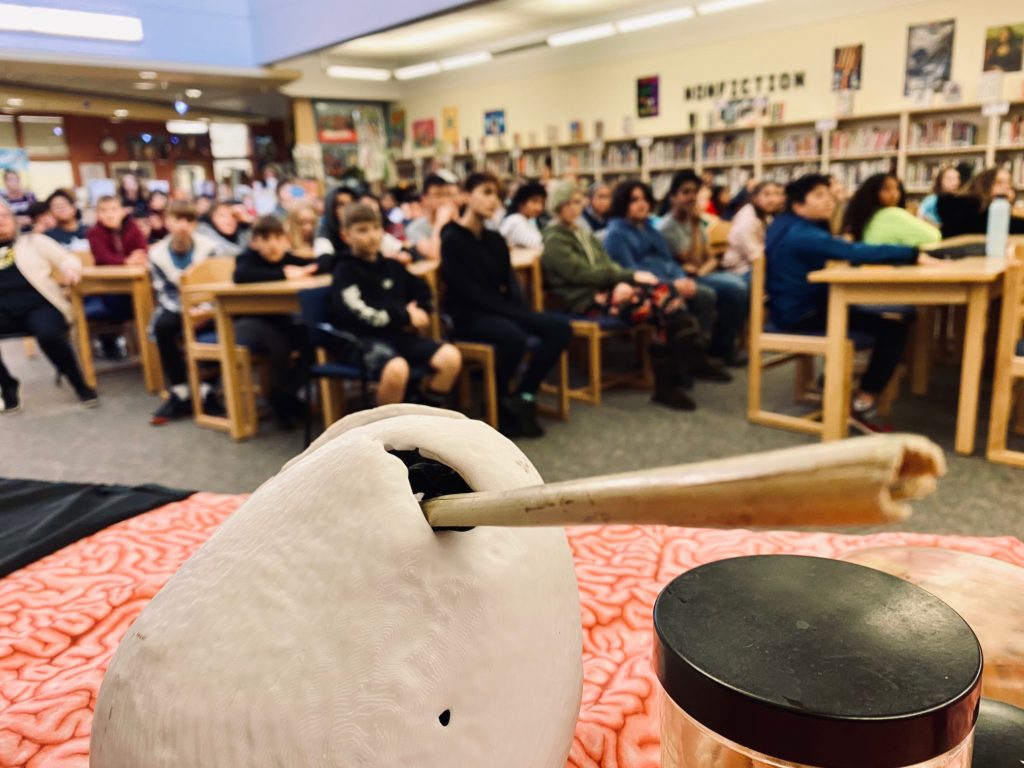
These experiences also have significant impact on our undergraduate and graduate volunteers. From Drew Sinclair at Portland State University: “I just wanted to reach out and offer some of my feelings about today’s event.”
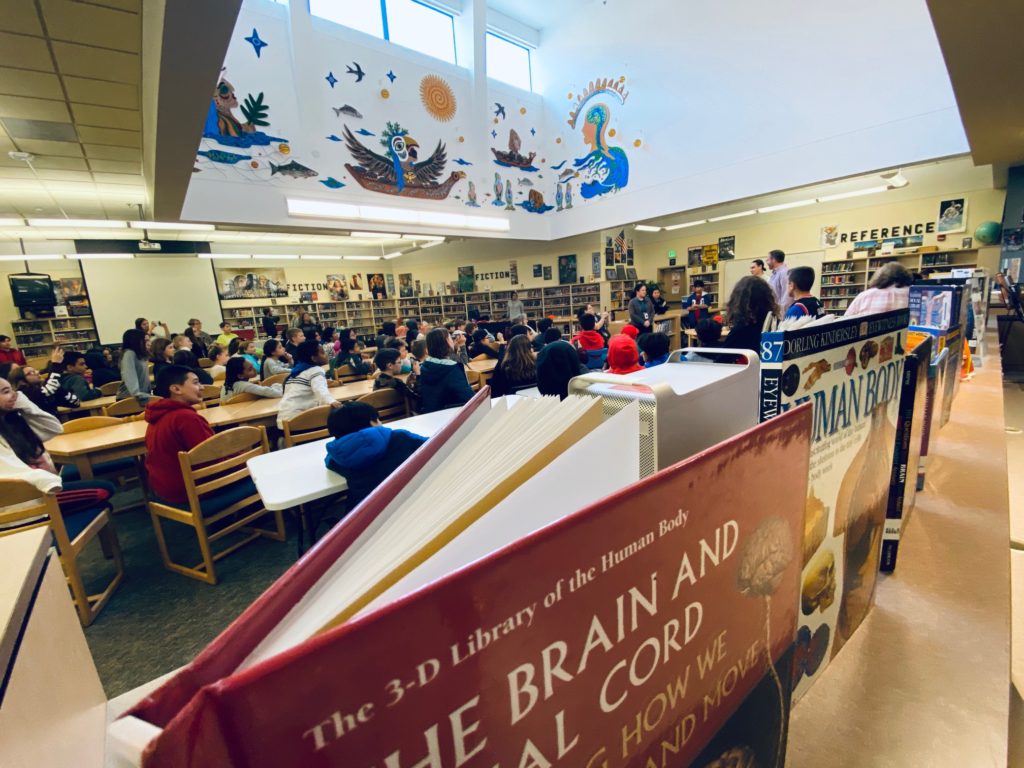
“First, I’d like to thank you on behalf of myself and all those you’ve surely affected during your time doing this outreach. It’s such a powerful stepping stone for so much knowledge and understanding.”
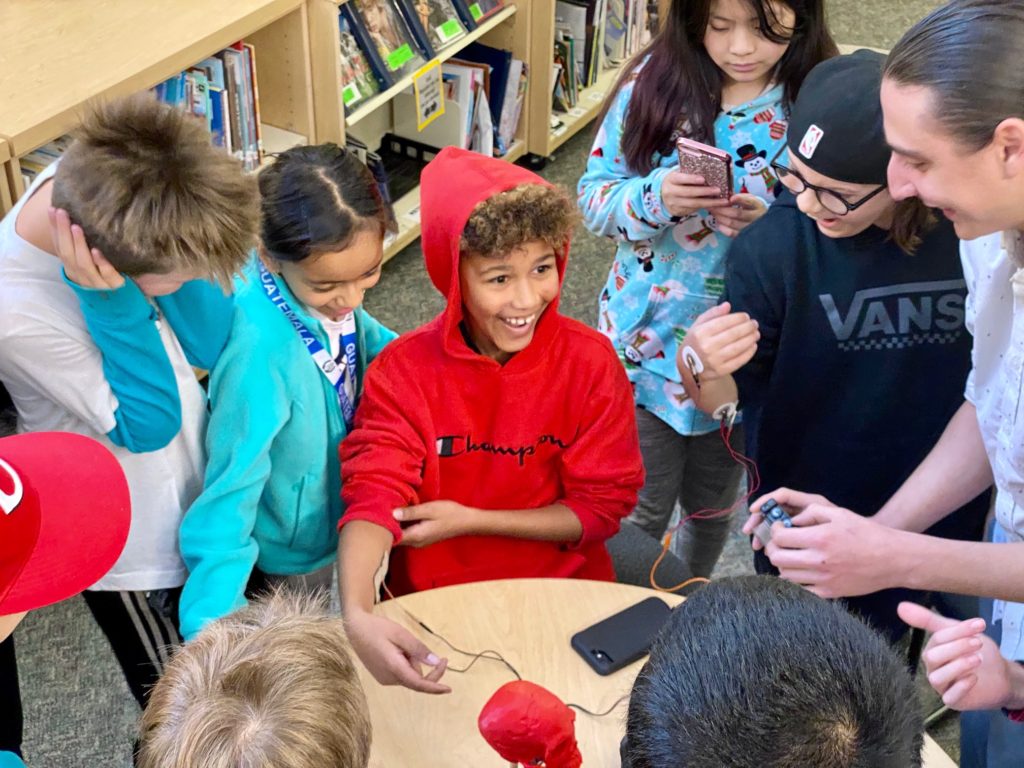
“Second, I’d like to say that I’m supremely grateful for the experience of qualifying my life trajectory out loud to a group of people. It’s caused me to feel a sense of completeness and competence that I haven’t felt in a long time, or possibly ever. Since the event, I’ve been awash in thoughts of positive self-reinforcement; a cascade of self-talk like, ‘you’re doing it,’ and, ‘you’ve made the right choice’ have simply overwhelmed me with gratitude.”
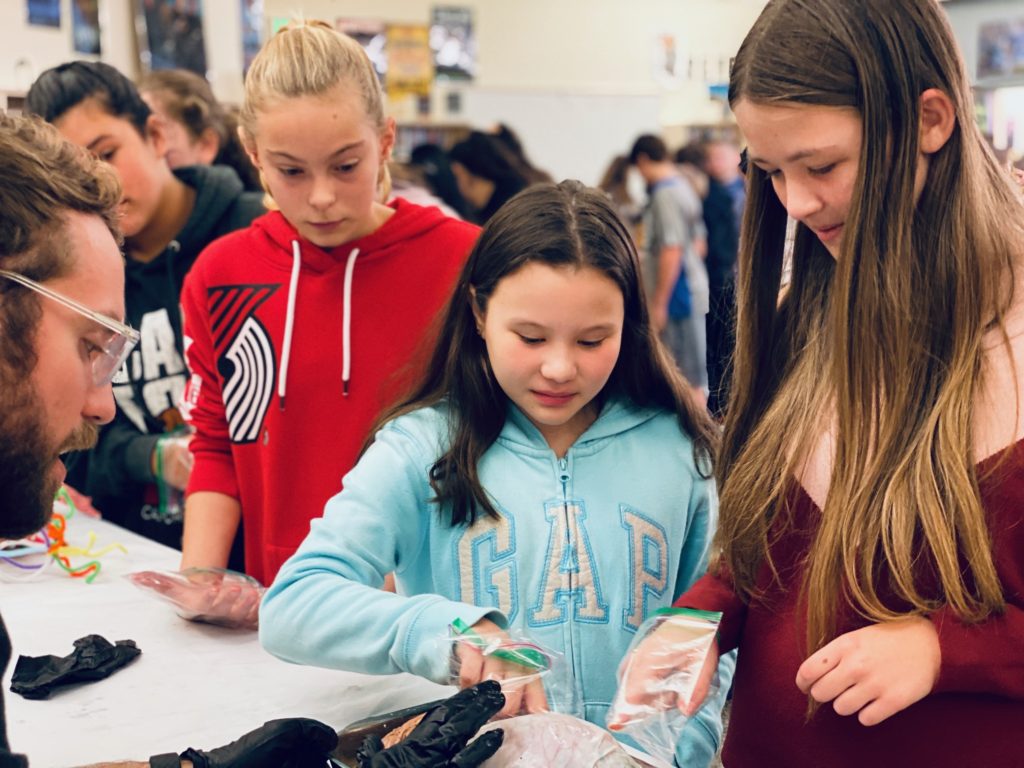
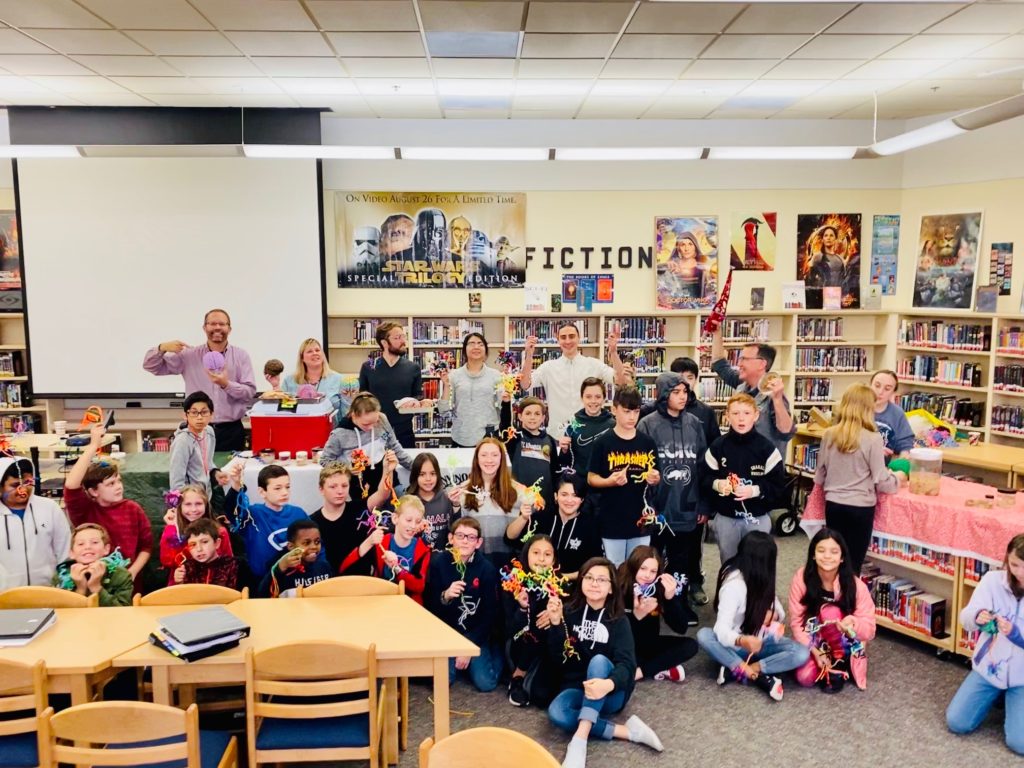
Rising above! Many thanks to Keith Johnson and all the other teachers and staff at Shahala for another memorable visit to their school!


